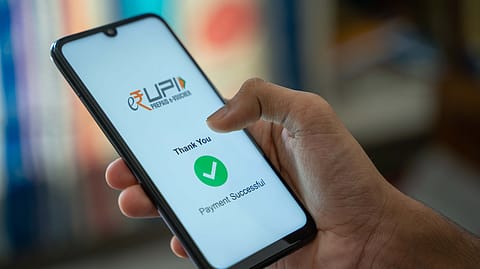New UPI rules kick in from today: How will it impact your transactions? Here's all you need to know
A major update in the system is the addition of a balance enquiry feature.

The new guidelines that will impact the Unified Payments Interface (UPI) has come into force from today. The guidelines, introduced by the National Payments Corporation of India (NPCI), has pointed out that these new rules are aimed at ensuring more responsible and efficient use of UPI APIs (Application Programming Interfaces).
Under the new rules, payment service provider (PSP) banks and acquiring banks will need to monitor and regulate all API requests closely, both customer-initiated and system-generated, based on transaction velocity and transactions-per-second (TPS) limits.
Let us now see what these significant changes are that UPI users will face starting from August 1, 2025.
Balance enquiry: A major update in the system is the addition of a balance enquiry feature. The limit for checking the balance via UPI is 50 requests per app per customer each day. The customer strictly initiates these requests, and UPI apps must also include measures to restrict or block balance enquiry calls during peak hours.
List account: The List Keys API, used to retrieve public keys from NPCI, is limited to one request per day per PSP, with a minimum page size of 1,000. Similarly, the List Account API, used to identify bank accounts linked to a mobile number, is now restricted to 25 requests per customer per app per day. Importantly, the API can only be triggered after the customer selects their bank in the UPI app, and all retries must be based on the customer's consent.
The autopay mandate execution: To execute the autopay UPI mandate, a maximum of one attempt and three retries per mandate is allowed under the new rule. The PSPs must initiate such transactions at moderate TPS levels and only during non-peak hours.
The check transaction status API: This API must be used by the conditions specified in the April 2025 circular. PSPs are instructed to request status updates only after waiting for a predefined period.
Recommended Stories
The validate address API: This will be used for verifying UPI IDs before initiating a transaction and is now heavily regulated. It may only be used when a customer intends to make a payment. Stand-alone use is strictly prohibited.
Moreover, the NPCI has also asked banks to schedule autopay executions during the non-peak hours. Peak hours are defined as the periods during the day when UPI financial transactions reach their highest transaction volume per second, observed from 10:00 to 13:00 hours and from 17:00 to 21:30 hours.
NPCI has implemented several changes in the past as well to the UPI ecosystem to enhance overall system performance and prevent the misuse or overuse of APIs, particularly during periods of high transaction volumes.